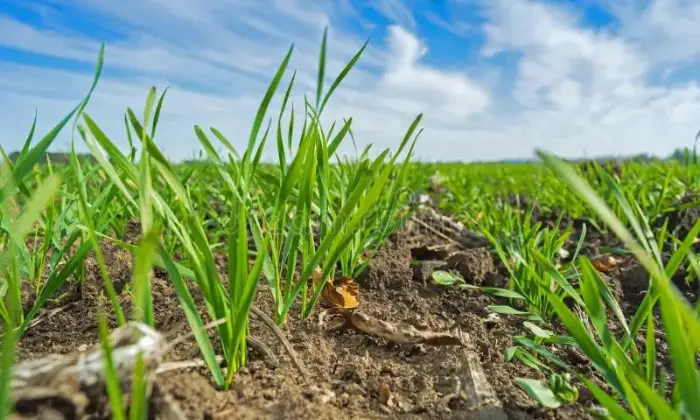When the winter season approaches, plants undergo a natural process called dormancy. This period is crucial for survival, as they conserve energy and protect themselves from harsh weather conditions. However, it doesn’t mean that they don’t need to care. Winter fertilization plays a vital role in ensuring your lawn and garden remain healthy and ready to thrive when spring arrives. Let’s delve into the importance of winter fertilization, the types of fertilization that should be applied suitable for the colder months, and best practices for application.
The Importance of Winter Fertilizers
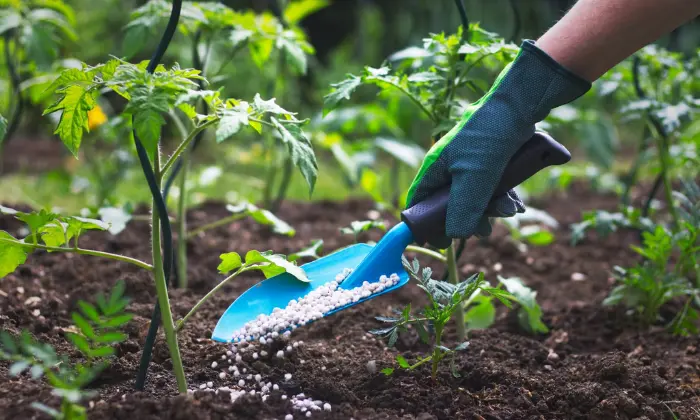
During the winter, plants enter a state of dormancy to conserve energy. This means their root growth slows down, and they become less active. While this might seem like a period of rest, plants still require essential nutrients to support basic metabolic functions and prepare for the upcoming growing season. Supplying nutrients during this time is crucial to ensuring they emerge from dormancy with strong roots and are healthy.
Consulting with experts like Robert Complete Care can provide valuable insights into the specific needs of your lawn and garden during the winter. Their expertise can guide you in choosing the right fertilization approach tailored to your landscape.
Organic Winter Fertilizers

These fertilizers are derived from natural sources for your lawn and offer benefits such as safety for humans and pets, along with environmental advantages. However, they may provide slower results and could potentially lead to weed and grub issues.
Pros
Environmentally Friendly: Organic winter fertilizers are derived from natural sources, making them environmentally sustainable and reducing the risk of chemical runoff into waterways.
Slow Release of Nutrients: Organic fertilizers typically release nutrients slowly over time, providing a steady supply of nourishment to the grass plants throughout the winter season.
Safe for Pets and Wildlife: Organic fertilizers are generally safer for pets, wildlife, and children compared to synthetic fertilizers, as they do not contain harsh chemicals or additives.
Cons
Slower Results: Organic fertilizers may take longer to show visible results compared to synthetic fertilizers, as they rely on microbial activity in the soil to break down and release nutrients.
Variable Nutrient Content: The nutrient content of organic fertilizers can vary depending on their source and manufacturing process, making it more challenging to accurately determine and control nutrient application rates.
Potential for Odor: Some organic fertilizers, particularly those derived from animal manures, may have a strong odour during application, which could be unpleasant for homeowners and neighbours.
Synthetic Winter Fertilizers
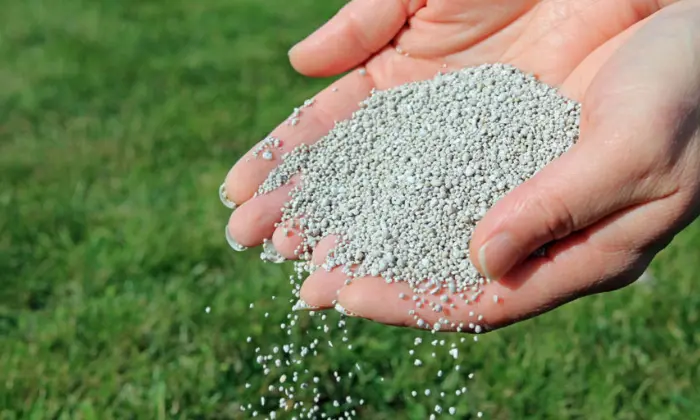
Known for their cost-effectiveness and rapid results, Like when to fertilize synthetic fertilizers are a popular choice. However, they may lack micronutrients and carry the risk of overapplication.
Pros
Longer Shelf Life: Synthetic fertilizers generally have a longer shelf life compared to organic alternatives, which can be advantageous for homeowners who prefer to buy in bulk or store fertilizers for extended periods.
Controlled Nutrient Content: Synthetic fertilizers are formulated with specific nutrient ratios, making it easier to tailor the application to the needs of your lawn and address any deficiencies more precisely.
Longer Shelf Life: Synthetic fertilizers generally have a longer shelf life compared to organic alternatives, which can be advantageous for homeowners who prefer to buy in bulk or store fertilizers for extended periods.
Cons
Environmental Impact: Synthetic fertilizers can contribute to environmental pollution, particularly if overapplied or washed into waterways, where they can cause eutrophication and harm aquatic ecosystems.
Risk of Nutrient Runoff: Synthetic fertilizers are more prone to leaching and runoff compared to organic alternatives, posing a risk of groundwater contamination and nutrient loss.
Potential for Chemical Buildup: Continuous use of synthetic fertilizers without proper soil testing and management can lead to nutrient imbalances and soil degradation over time.
Slow-Release Winter Fertilizers
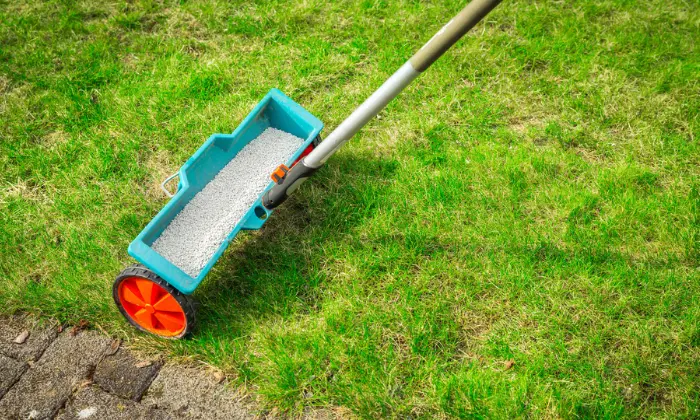
These slow-release winter fertilizers ensure even nutrient distribution over time, preventing nitrogen overload. While they offer steady nourishment, the results may be less noticeable initially and may not address immediate needs.
Pros
Gradual Nutrient Release: Slow-release fertilizers provide a steady supply of nutrients to the grass over an extended period, ensuring continuous feeding without the risk of excessive growth or nutrient leaching.
Reduced Risk of Burn: Since slow-release fertilizers release nutrients gradually, there’s a lower risk of burning the grass compared to quick-release fertilizers, especially during periods of cold weather when grass may be more sensitive.
Longer-Lasting Effect: Slow-release formulations can provide nutrients to the grass for several weeks or even months, reducing the need for frequent reapplication and saving time and effort in lawn maintenance.
Cons
Higher Cost: Slow-release fertilizers often come at a higher price point compared to quick-release alternatives due to their specialized formulations and technology for controlled nutrient release.
Slower Results: While slow-release fertilizers provide long-lasting benefits, they may not show immediate results compared to quick-release fertilizers, requiring more patience to see improvements in lawn health and appearance.
Limited Availability of Nutrients: Some slow-release fertilizers may not contain a wide range of nutrients, potentially leading to deficiencies if not supplemented with additional fertilizers or soil amendments as needed.
Liquid Winter Fertilizers

Easy to apply and quickly absorbed by plants, liquid fertilizers offer convenience. As for How long fertilizers work, they require frequent applications and pose challenges in storage.
Pros
Quick Absorption: Liquid fertilizers are quickly absorbed by the grassroots, providing rapid nutrient uptake
Even Application: They can be applied evenly across the lawn surface, ensuring a uniform distribution of nutrients.
Customizable Formulation: Liquid fertilizers often come in concentrated forms that allow for easy customization of nutrient ratios based on specific lawn needs.
Cons
Frequent Application Needed: Liquid fertilizers may require more frequent application compared to slow-release granular fertilizers, as they are quickly absorbed and may need replenishing sooner.
Potential for Runoff: If misapplied or during heavy rainfall, liquid fertilizers can contribute to nutrient runoff, potentially harming the environment and water bodies.
Risk of Overfertilization: It’s easier to accidentally overapply liquid fertilizers, leading to nutrient imbalances or burns if not applied with care.
Winter Fertilizer Application

Proper application techniques are essential for maximizing the benefits of winter fertilization. Hiring professionals for application can ensure precise and efficient lawn and garden treatment. Factors such as timing and method should be carefully considered to optimize results based on your specific climate and plant requirements.
Preparing Your Garden for Winter
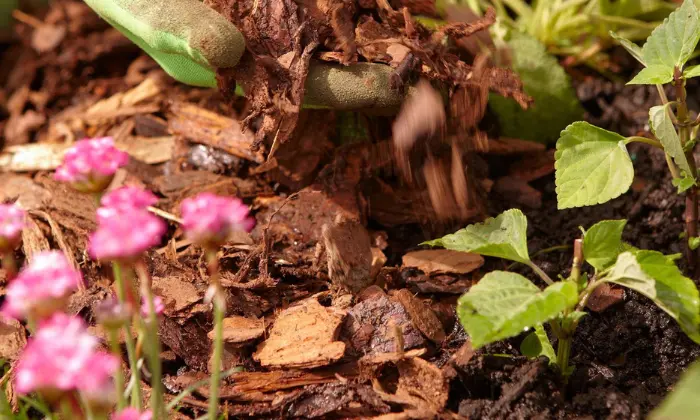
Preparing your garden before applying fertilizer for winter sets the stage for optimal nutrient absorption. Establishing a winter fertilization schedule ensures timely application, considering climatic conditions and your plants’ unique needs.
Winter Fertilization Timeline

During the winter months, it’s essential to adjust your fertilization schedule to suit the needs of your plants. In colder climates, many plants go dormant or grow at a slower pace, so they don’t require as much fertilizer. However, some winter-loving plants, like certain types of evergreens or winter vegetables, may still benefit from a light application of fertilizer to support their root growth. It’s important to choose a fertilizer specifically formulated for winter use and to follow the instructions carefully to avoid over-fertilization, which can harm plants during their dormant period. Keep an eye on your plants’ health and adjust your fertilization schedule accordingly as spring approaches.
Benefits of Winter Fertilization

Winter fertilization enhances plant survival during freezing temperatures and contributes to overall plant health. Grass, trees, and plants receive essential nutrients to withstand the challenges of winter and emerge vigorously in spring. In winter, fertilizing your lawn offers numerous benefits to your fall lawn and garden, despite the colder temperatures. Firstly, it enhances plant survival during freezing conditions by providing essential nutrients that support overall health and resilience. This helps plants withstand the stress of winter, reducing the risk of damage or death.
Winter Fertilizer Basics & Tips

Choosing slow-release formulations ensures a steady supply of nutrients throughout the winter lawn months. Guidance on the timing and frequency of application helps maintain a healthy lawn and garden. Tailoring fertilizer application to the specific needs of turfgrass and perennial plants maximizes their resilience during winter. Here are some basics and tips for winter fertilizer:
Choose the Right Fertilizer: Look for a lawn winter-specific fertilizer blend. These blends typically have a higher potassium content, which helps strengthen the grass plants and improve their cold tolerance. Additionally, they may contain slow-release nitrogen to provide a steady supply of nutrients over time.
Timing Matters: Apply fall cleanup fertilizer and winter fertilizer at the end of the fall season, before the first frost sets in. This timing allows the grass to absorb the nutrients and prepare for the dormant winter period. Avoid fertilizing too late in the season, as it can encourage new growth that may be susceptible to cold damage.
Soil Test: Conduct a soil test before applying fertilizer to determine its nutrient needs accurately. Soil tests can help you identify deficiencies and adjust your fertilizer application accordingly, ensuring you’re providing the right nutrients in the right amounts of potassium.
Watering Considerations: While grass growth slows down during the winter, it still requires moisture to stay healthy. If your region experiences dry winter conditions, consider watering the lawn occasionally, especially after fertilization, to help the grass absorb the nutrients.
Mow Before Fertilizing: Give your lawn a thorough mowing before applying winter fertilizer. This ensures that the fertilizer reaches the soil surface more effectively and allows for better absorption by the grassroots system.
Turfgrass Essentials
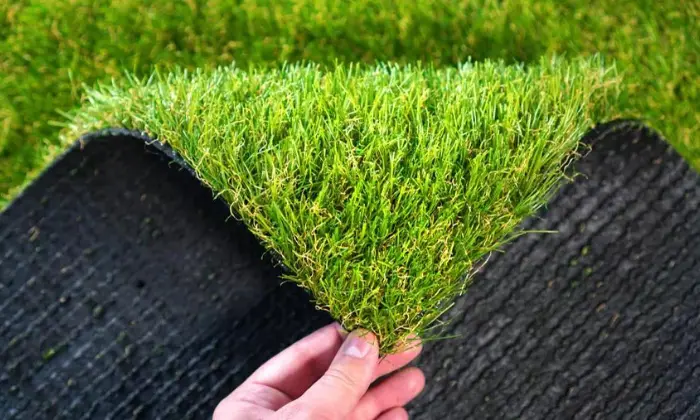
Turfgrass, like any other plant, requires certain essentials to thrive. These include water, sunlight, air, and nutrients from the soil. Adequate watering ensures the grass stays hydrated and can carry out essential metabolic processes. Sunlight is necessary for photosynthesis, the process by which plants produce energy. Air circulation promotes healthy root growth and prevents diseases. Lastly, nutrients such as nitrogen, phosphorus, and potassium are vital for turfgrass to develop strong roots, lush foliage, and overall resilience. Providing for these basic needs helps maintain a vibrant and resilient lawn.
Catering to Perennial Plant Needs
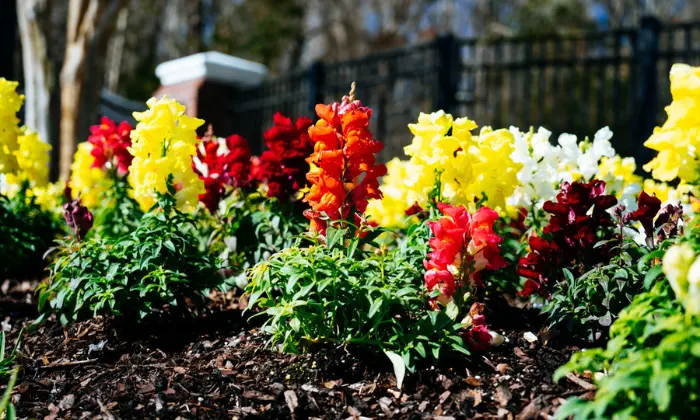
Perennial plants, unlike annuals, come back year after year, so they have ongoing needs to thrive. They typically require regular watering, especially during dry spells, to establish strong root systems. Adequate sunlight is crucial for most perennials, although some shade-loving varieties exist. Regular pruning and deadheading help promote healthy growth and flowering. Additionally, providing a balanced fertilizer in the spring can give them a nutrient boost for the growing season. Lastly, mulching around the base of perennial plants helps retain moisture, suppress weeds, and insulate roots during winter. By meeting these basic needs, perennial plants can flourish and beautify the garden for years to come.
Professional Lawn Fertilization Services
When it comes to maintaining lawn plants and flowers with our top-notch lawn care, look no further than Robert’s Complete Care. Our professional fertilization services ensure that your lawn receives the essential nutrients it needs to thrive throughout the year. With our expertise and premium-quality fertilizers, we’ll help you achieve a lush, green lawn that’s the envy of the neighbourhood. Trust Robert’s Complete Care for all your lawn care needs, and let us keep your outdoor space looking its best.
Conclusion
Winter fertilization is crucial for maintaining a healthy lawn and garden during the colder months. By understanding the importance of supplying nutrients, choosing the right fertilizer, and implementing proper application techniques, you can ensure your landscape remains vibrant and ready for the spring season. Don’t hesitate to seek professional assistance from Robert’s Complete Care for personalized recommendations and expert care. Schedule a free estimate with Robert’s Complete Care today to give your lawn the attention it deserves.

